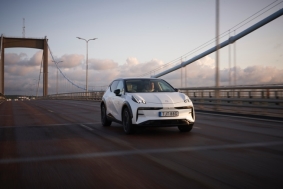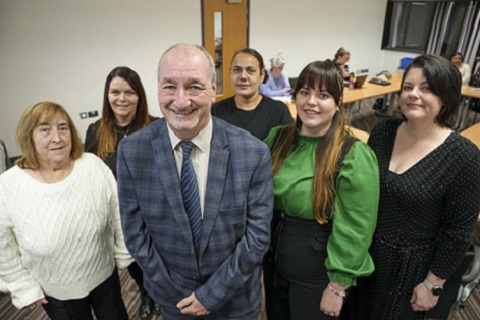Results of a new YouGov survey, commissioned by the UK Committee for UNICEF (UNICEF UK) recently released, shows that 70% of parents with babies and young children feel it is getting harder every year to be a parent in Britain, with 70% feeling that being a parent today is harder than it was for their parent’s generation.
The rising cost of living (83%) is the most common reason parents feel it is harder to be a parent now. More than two thirds (68%) of parents feel it is harder due to a lack of childcare, less time to spend with their children (64%), and fewer local support services (41%). Parents also said that the cost of housing (78%) and dangers of social media (75%) were making parenting for their generation harder.
The charity conducted the survey amid escalating concerns for families and the potential impact on babies and young children’s development and builds on research from last year for its flagship campaign, Early Moments Matter. In the survey of parents of 0–4-year-olds in Great Britain, two thirds (68%) of respondents believe that the Government is not doing enough to support them as parents of young children.
Jon Sparkes Chief Executive of UNICEF UK, said: “This lack of support for families falls at a critical stage in babies and young children’s development, threatening life chances and piling more and more pressure on families.” Of those surveyed, 30% of parents reported working more hours in the past year due to increased financial pressures, with 37% having less time to read, play, and cook healthy meals with their child(ren).
This paints a worsening and worrying picture of morale amongst parents with 78% reporting that the rising cost of living has negatively impacted their family life (rising from 2.36 million in 2022 to 3.12 million in 2023*) and 61% saying they have struggled with their mental health since becoming a parent. The survey is the latest from UNICEF UK’s Early Moments Matter campaign, which is calling on the UK Government to step up support for children under 5 and their families, and improve early childhood services across the country by committing to a national Baby and Toddler Guarantee.
The campaign calls have been backed by more than 80 leading charities, experts in early childhood development, and UNICEF Ambassadors.
What worries parents across Britain?
- Rising cost of living: Families negatively impacted by the cost of living are making financial decisions that affect their children by cutting back on activities like playgroups and sports clubs (56%), reducing their spending on books, toys or crafting materials (50%), as 71% of parents overall said their family budget is stretched to the limit.
- Their children’s futures: 66% of parents surveyed said they were worried about their child’s future life chances, 50% said they cannot afford to give their child(ren) the life they want to, and 71% said they are struggling to put any savings aside for their child’s future.
- Mental health: 61% reported to have struggled with their mental health since becoming a parent. Many have said in the last year that they had felt overwhelmed (49%), anxious (43%), unsupported (36%) and lonely (26%) all or a lot of the time.
- Shifts in society making parenting more difficult: 70% of parents with children under 5 years said they felt that every year if feels harder to be a parent in this country. Reasons parents gave for this include the cost of living is higher now (83%), that parents have less time to spend with their children now (64%), there is a lack of affordable and accessible childcare now (68%), less help from family/friends now (50%), and fewer local support services now (41%).
The research also highlighted stark inequalities, with 94% of the poorest households reporting that the cost-of-living crisis has negatively impacted family life (compared to 78% of all parents with young children), and 85% reporting that they are worried about their child’s future life chances. These parents are also more likely to be struggling with their mental health (74% compared to 61% of all parents with young children) and least likely to have received support for their mental health (58% compared to 42% of all income groups surveyed).
Parents also told UNICEF UK anonymously: “Previously people could survive on one household income, now we have two and it is barely enough”, and another respondent said: “There are less community support spaces, places like Sure Start centres are really missed.”
Jon Sparkes, Chief Executive of UNICEF UK, said: “These findings provide a stark snapshot into the reality for many families with babies and young children right now - worried for their children’s future, struggling to make ends meet and left feeling anxious, alone, and unsupported.
“It is vitally important, that families can access basic services like maternity care, health visits, mental health support, affordable and high-quality childcare and support for Special Educational Needs and Disabilities (SEND). These services, whilst essential for all, can provide a lifeline for families struggling financially and/or with their mental health.
“The fact that it’s the most disadvantaged families who are struggling more and who are least likely to have accessed support, means we risk cementing inequalities in children’s lives before they’ve even picked up a pencil. The UK Government’s Start for Life initiative seeks to improve support for babies and young children, but its funding does little to address the growing shortfalls in essential services.
“Urgent Government action is needed to address the gaps to stop families slipping through the net and to safeguard our babies and children’s futures." UNICEF UK’s Early Moments Matter is calling on the UK Government to introduce a National Baby and Toddler Guarantee which would set out and guarantee the basic services that every young child in the UK is entitled to – whoever they are and wherever they are born.
This would mean that families know what support they are entitled to and can access the right services for their baby’s health, well-being, and early education, right from the start.












